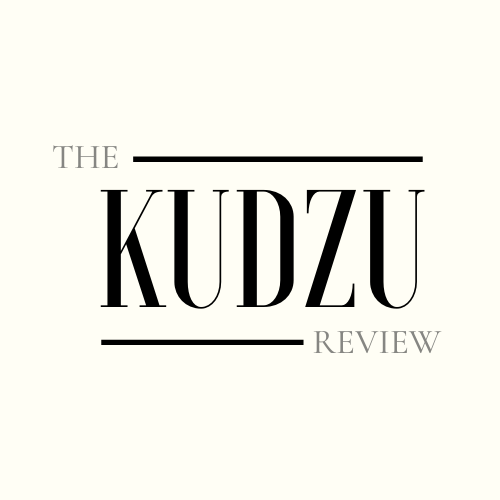by Kayley Williams

Photo by Gabrielle Dickson on Unsplash
If you have been on social media at all in the last year or so you may be familiar with the term “BookTok.” BookTok, the book community on TikTok, has gained popularity as a platform for bibliophiles to share their love for reading, discuss books, and connect with others who share their passion for literature.
Within BookTok, various subgenres like Dark Academia, Cottagecore, and WitchTok cater to different interests and subcommunities. When I first started to fall back in love with reading almost three years ago, it was thanks to a popular BookTok subcommunity called “Femcel” or “Unhinged Women” BookTok.
The Femcel community originated as a response to the incel (involuntary celibate) movement, providing a platform for women to discuss their relationships, sexuality, and the societal pressures they face as women. Femcel BookTok often promotes literature with these themes and creates productive discourse on these topics. However, Femcel BookTok often perpetuates troubling narratives romanticizing toxic relationships and glorifying self-destructive behaviors, which can undermine efforts to address abuse and mental health issues. So, what are some popular Femcel reads, and how badly have they been misconstrued by their audience?
Least to Most of a Red Flag:
- Her Body and Other Parties by Carmen Maria Machado
Carmen Maria Machado’s collection of stunning short stories offers an exploration of the intricate intersections of gender, sexuality, and body image. With each narrative, Machado deftly challenges entrenched societal norms and expectations, urging readers to confront uncomfortable truths surrounding identity and power dynamics. While certain stories may contain explicit content, Machado’s intention extends far beyond mere sensationalism; rather, she employs her prose as a tool to prompt readers to critically examine the complexities of the human experience. It is Machado’s unmistakable thematic clarity and literary finesse that distinguish her collection as a standout among its peers. Within the Femcel BookTok community, Machado’s work is widely lauded for its profound depth and insight, sparking meaningful discussions that often delves beneath the surface interpretations of her narratives. Therefore, this novel is the least red flag of all the books on this list.
2. Normal People by Sally Rooney
Sally Rooney’s Normal People intricately examines the dynamics of a relationship between its protagonists Connell and Marianne. While their relationship is tumultuous, Rooney’s writing provides nuanced insights into their emotional vulnerabilities and struggles. Unfortunately, the portrayal of toxic relationship dynamics at times is misinterpreted by readers seeking to romanticize or idealize the characters’ behaviors, thus leading to misconceptions about the nature of healthy relationships. However, in contrast to other books on this list, Normal People focuses on a more balanced, loving, well-meaning yet complex relationship; one that has both its strengths and weaknesses. While some of the negative aspects may be subject to misinterpretation and idealization by some readers, the novel ultimately presents a nuanced and realistic depiction of love and human connection. While not immune to misconceptions, the relationship in Normal People stands out as less inherently toxic to romanticize compared to most other books on the list.
3. Bunny by Mona Awad
Mona Awad’s Bunny presents a fascinating journey into the realms of conformity, identity, and the intricate pressures of belonging, all cloaked in a darkly comedic narrative. It follows outsider Samantha Heather Mackey’s surreal journey into a clique of her privileged female classmates, blending dark humor, horror, and academia, unveiling twisted secrets with haunting consequences. While Femcel BookTok readers often find themselves captivated by the dark eccentricities of the characters, most can recognize the underlying critique of these characters and their actions. Awad’s message is to examine society’s expectations and the ramifications of conforming to them, offering a sharp commentary on the consequences of blindly adhering to societal norms. Although instances of misinterpretation among its readers is not as prevalent with Bunny compared to other books, said instances nonetheless underscore a broader trend of misunderstanding the complexities of female characters in literature, paving the way for problematic interpretations in subsequent works on this list.
4. Eileen by Ottessa Moshfegh
Ottessa Moshfegh’s Eileen presents a deeply unsettling portrayal of a troubled protagonist and her dysfunctional relationships. Some readers tend to misconstrue Eileen’s rebellion against societal norms as something that is empowering, overlooking the underlying trauma and psychological distress that are driving her actions. Eileen is harder to mischaracterize than subsequent protagonists on this list. Her physical appearance is described in unflattering terms, with Moshfegh emphasizing her physical flaws, unkempt appearance, and general disarray. Eileen’s personal hygiene is also neglected, as she admits to not showering or changing her clothes for weeks, underscoring her disregard for basic self-care. Moshfegh vividly describes Eileen’s unkempt appearance, with greasy, stringy hair, yellow teeth, and sallow skin, further accentuating her repulsiveness. Through these vivid and unflattering descriptions, Moshfegh clearly paints a stark portrait of Eileen as a character who is disconnected from our societal norms of cleanliness and self-care through trauma, not admirable rebellion.
5. Conversations with Friends by Sally Rooney
In Conversations with Friends, Sally Rooney once again explores complex relationships and moral ambiguities, but this book has a focus on the dynamics between Frances, her ex-girlfriend, and her married friends. The novel presents nuanced characterizations and examines the consequences of Frances’ actions. However, Femcel BookTok readers tend to romanticize Frances’ affair as a bold assertion of rebellion against the monogamous heterocentric norm, rather than recognizing the betrayal of trust and the ethical implications of her actions. Just like Rooney’s other novel though, Conversations with Friends’s relationships have both strengths and weaknesses. While negative aspects may be subject to misinterpretation and idealization by some Femcel BookTok readers, the novel ultimately presents a nuanced and realistic depiction of love and human connection. A little bit more problematic than Normal People, Conversations with Friends is still inherently less toxic to romanticize than the following books on the list.
6. My Dark Vanessa by Kate Elizabeth Russell
My Dark Vanessa tackles the sensitive and disturbing subject of sexual abuse and manipulation through the lens of a complex protagonist. The novel presents a relationship between Vanessa and her teacher, Jacob Strane, with a level of ambiguity and complexity that is challenging for many readers to navigate. Strane employs manipulative tactics to groom Vanessa, blurring the lines between affection and exploitation. Vanessa herself struggles to come to terms with the reality of her experiences, grappling with feelings of guilt, shame, and confusion. Her beliefs about love further complicate her understanding of the dynamics at play. Many individuals within the Femcel BookTok community are drawn to narratives involving student/teacher relationships for various reasons. While some may seek escapism or identification with characters, many readers have failed to recognize the story’s abuse for what it is, instead viewing it as a consensual relationship or a product of Vanessa’s own agency.
7. The Virgin Suicides by Jeffrey Eugenides
Jeffrey Eugenides’ The Virgin Suicides is a haunting and poignant exploration of adolescent despair, depression, and the intricate dynamics of family dysfunction. Through its beautifully crafted prose and enigmatic narrative style, the novel beckons readers to delve into the depths of the human psyche and contemplate the profound impacts of mental illness and societal pressures on young women. Yet, as the story unfolds and the fate of the Lisbon sisters unfolds, there emerges a heightened potential for misinterpretation. Many Femcel BookTok readers find themselves drawn to romanticizing the tragic endings of the sisters, viewing their suicides as poetic or symbolic gestures rather than confronting the stark realities of their suffering. In doing so, they trivialize the complex and multifaceted nature of mental illness, glossing over the underlying causes and contributing factors that led the Lisbon sisters to such devastating outcomes.
8. Gone Girl by Gillian Flynn
Gillian Flynn’s Gone Girl is a psychological thriller that explores themes of deception, manipulation, and toxic relationships. The novel challenges readers’ perceptions of truth and morality, but as the book progresses, the potential for misconceptions rises. Many Femcel BookTok readers tend to focus solely on the shocking plot twist of Amy’s actions and her somewhat sympathetic motivations. She has been labeled as a “Girl Boss” countless times by many people who are overlooking the deeper critique of Amy herself and the media’s sensationalized portrayal of her. The misinterpretations of the novel’s message are not only extremely common, but extremely far from the point the author was trying to make. While Amy’s actions may be admired for their intelligence and agency, Gillian Flynn’s exploration of identity, manipulation, and societal expectations is meant to have readers question their assumptions about gender, morality, and the consequences of unchecked ambition within a sensationalized media landscape.
9. The Bell Jar by Slyvia Plath
In Sylvia Plath’s “The Bell Jar,” the journey of protagonist Esther Greenwood through depression and existential turmoil is depicted with striking depth and nuance. Despite facing mental health challenges and societal expectations, Esther’s struggles are sometimes trivialized or glossed over by some readers, who focus more on her perceived glamor or perceived rebellion against societal norms. Through Esther’s narrative, Plath exposes the limitations and constraints of gender roles in mid-20th-century America, as well as the stigma surrounding mental illness and the inadequacies of the mental health care system. However, despite Plath’s intentions to shed light on these important issues, some readers fail to engage with the novel’s deeper themes and messages, preferring instead to focus on surface-level interpretations or idolizing Esther as a misunderstood or rebellious figure. Ultimately, the romanticization of Esther’s struggles within the Femcel BookTok community reflects a broader failure to fully understand the complexities of mental illness, societal pressures, and gender expectations depicted in The Bell Jar.
10. My Year of Rest and Relaxation by Ottessa Moshfegh
In My Year of Rest and Relaxation, Ottessa Moshfegh presents a compelling exploration of depression, isolation, and self-destructive behavior through the lens of an upper class, conventionally attractive white woman. Most Femcel BookTok readers have romanticized the protagonist’s self-destructive actions, and she is often looked up to by them as a role model or relatable figure. This is an extremely common interpretation, even though Ottessa Moshfegh goes out of her way to showcase the protagonist as being depressed, cruel, and ignorant. Countless “she’s just like me” and “sigma female” memes focusing on the protagonist can be found on Femcel BookTok, readers not realizing that the author is critiquing the protagonist’s actions, not endorsing them. Ultimately, the extremely popular romanticization of My Year of Rest and Relaxation and its protagonist’s actions represents an intense failure among Femcel BookTok users to engage with the novel’s deeper themes and messages, making this the biggest red flags on the list.
From Carmen Maria Machado’s thought-provoking collection to Ottessa Moshfegh’s unsettling exploration of self-destructive behavior, each of these books offers a unique lens through which we can examine societal norms and our own personal struggles. However, it’s clear that the romanticization of toxic relationships and self-destructive behaviors can lead to a misunderstanding of the author’s intentions and a failure to engage with the deeper themes that are present in these narratives. As readers, it’s essential to approach literature with a critical eye and to recognize the complexities of the human experience depicted within its pages. By fostering meaningful discourse and challenging harmful narratives, we can ensure a more nuanced understanding of literature and its impact on our lives.

Kayley Williams is a senior at Florida State University, currently pursuing a Bachelor’s in Economics and has a minor in Business Studies. When she is not studying she enjoys working out, watching films, and of course, reading.
Want to read more? Check out our most recent posts!






Leave a comment